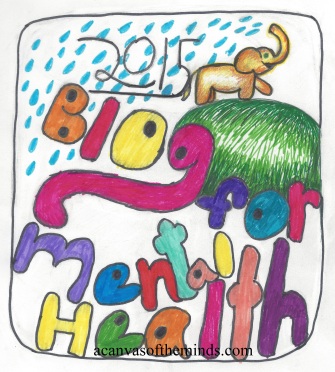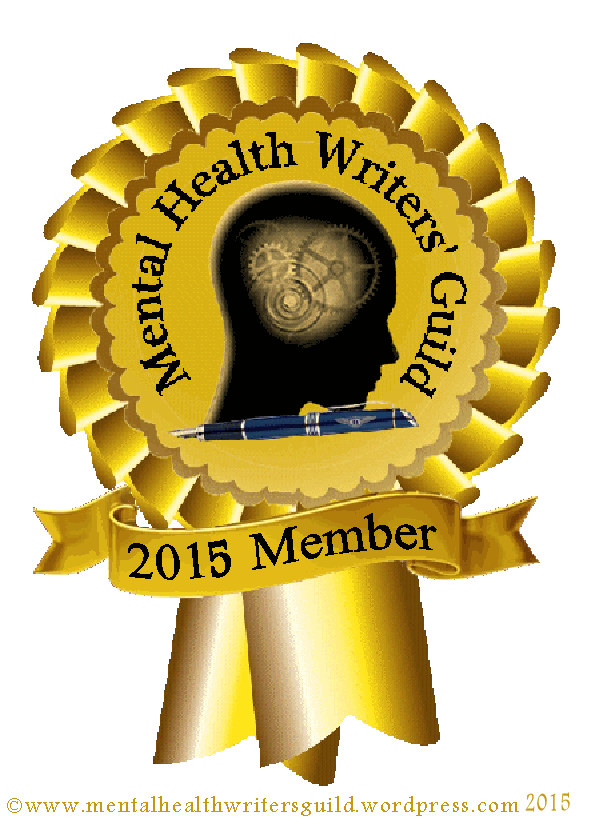It’s been a year since 1000 Voices Speak for Compassion was created. In honor of its one year anniversary, the topic of the month is to write about what participating in 1000 Voices has meant to us. I love “year in review” posts, and I love writing about compassion, so this topic is right up my alley.
In the past year, I have made a concerted effort to practice self-compassion, and while it continues to be challenging, it is the strategy that has been most effective in battling my demons. I’ve learned from studying compassion, listening to clients in therapy, and observing my own mind, that our instinctive response to coping with pain and suffering is to be unkind to ourselves. To minimize our suffering. To shame ourselves out of our pain. To chastise ourselves for being crazy, selfish, and petty. It’s ironic that, although we all want to be happy and feel good about ourselves, our default is to see ourselves as being flawed and unworthy.
This instinctive response to be self-critical is so strong that it often takes a while for me to come up with a self-compassionate response. Take today, for example. Another day where I’ve slept in and done nothing. Even though other people have probably done things like wake up early, gotten out of bed, tended to their spouses and children, and done some productive things.
I’ve gotten better at not berating myself, which reduces some of my suffering, but I still struggle with coming up with something loving to say to myself. But today I thought of one. Today, I thought that, for someone who struggles with depression, I’m actually a fairly productive person. And this made me feel strong instead of weak. In fact, I’m writing this blog post right now, since I’m feeling better about myself. Granted, I’m still doing it from my bed, but I can have compassion for myself for that, too.
Practicing self-compassion has changed the way I do therapy, because almost every client can identify that self-critical voice. Most of the time it says unkind things about us all day long, and we do nothing to stop it because it seems so natural and it feels true. So I teach clients how to practice mindfulness so that they can become aware of these thoughts without judgment or criticism. And then I teach them to have compassion for their feelings. This is pain; this is suffering. It does not make you crazy or weak; it makes you human. It is not your fault that you have come into the world this way, with this vulnerability; you did not choose it. And given that you are already in pain, let’s focus on whatever is in your control to make yourself feel better.
I understand why you practice self-compassion. There is no finish line. It’s not something that you master and then you can stop doing it. It’s like doing cardio for strengthening your heart, or lifting weights for your muscles. It is a lifetime activity.
The good thing about blogging is that it’s the psychological equivalent of looking in the mirror at the gym and seeing that your workouts are paying off. Hey! I am talking to myself differently! I am kinder to myself! It’s working! So thank you, 1000 Voices of Compassion, for providing me with this opportunity to strengthen my capacity to love.
For more posts on compassion, you can access the link-up here.
You can also find posts on Twitter @1000Speak.







Christy, I have read so many posts for this link-up that have brought tears to my eyes, and yours is another! It is heartening to know that 1000 Voices has been an opportunity for you to strengthen your capacity for love.
Everything you wrote here is beautiful. Self-compassion is a practice and such an important one. I have practised mindfulness and a self-inquiry and releasing process for several years, and seen my life improve immensely but it was when I actively began to practise self-compassion that I noticed the biggest changes. It wasn’t just me that changed, people around me did too! And yes, I still catch myself self-criticising – but when we notice, we can choose to let that go and be kind instead.
Thanks for being such a committed “Voice” and for joining in this link-up.
LikeLiked by 1 person
Thanks Yvonne! I didn’t think it was all that moving, so that’s nice to hear. I also think that, while practicing mindfulness is still helpful, it is the practice of self-compassion that I need the most.
LikeLike
Hi Christy,
Self-compassion hasn’t been such a focus for me in this journey, possibly because I worked through it earlier. However, maybe it could be something I think more about because I do doubt myself due to my severe medical condition and I am starting to think of looking for paid work or freelancing but it’s a big step and maybe if I had more self-compassion, it wouldn’t be such an issue. So thanks for getting me thinking about that. Both my kids have recently started new and different schools and I am needing to put myself on hold for a bit to get them sorted. That’s fine. In families, we should each have our turn, although I must say my husband misses out. He is carer for both me and our son and works long hours as well.
Personally, I’ve appreciated coming together with the 1000speak people just to hook up with others who want to encourage and nurture the good in our world.
Take care xx Rowena
LikeLiked by 1 person
It has made a big difference for me, and I am sure it would for you, too. Thanks for sharing.
LikeLiked by 1 person
Self-compassion is where most of my posts have been centered. I think it’s the root of many ills in society – we don’t practice compassion with ourselves, so how can we practice compassion with others?
Also, I really like your spin on “practicing” compassion. That’s a word we all use, but consider what that actually means. Practice can mean the repetition of an action with the intent to improve or it can mean the actual application of an idea, rather than just theory. Either way, I love how it works with compassion.
Glad you’re with us!
LikeLiked by 1 person
Thanks Lisa! I hadn’t thought of the idea of practice as an application of theory, but I guess that is what I’m going for. Just to make sure what I’m telling people really works.
LikeLike
Will I exercise today? Eat healthy? Work at improving my writing? Practice the violin? Will I work at forgiving myself and letting the past go? Hmm. It must feel good to be able to help people work on themselves, all while realizing the same things in yourself at the same time. I enjoyed reading your anniversary post.
LikeLiked by 1 person
I have to say, I can’t imagine doing anything else. And blogging in particular has been a great opportunity to focus on my own needs. Thanks for reading!
LikeLiked by 1 person